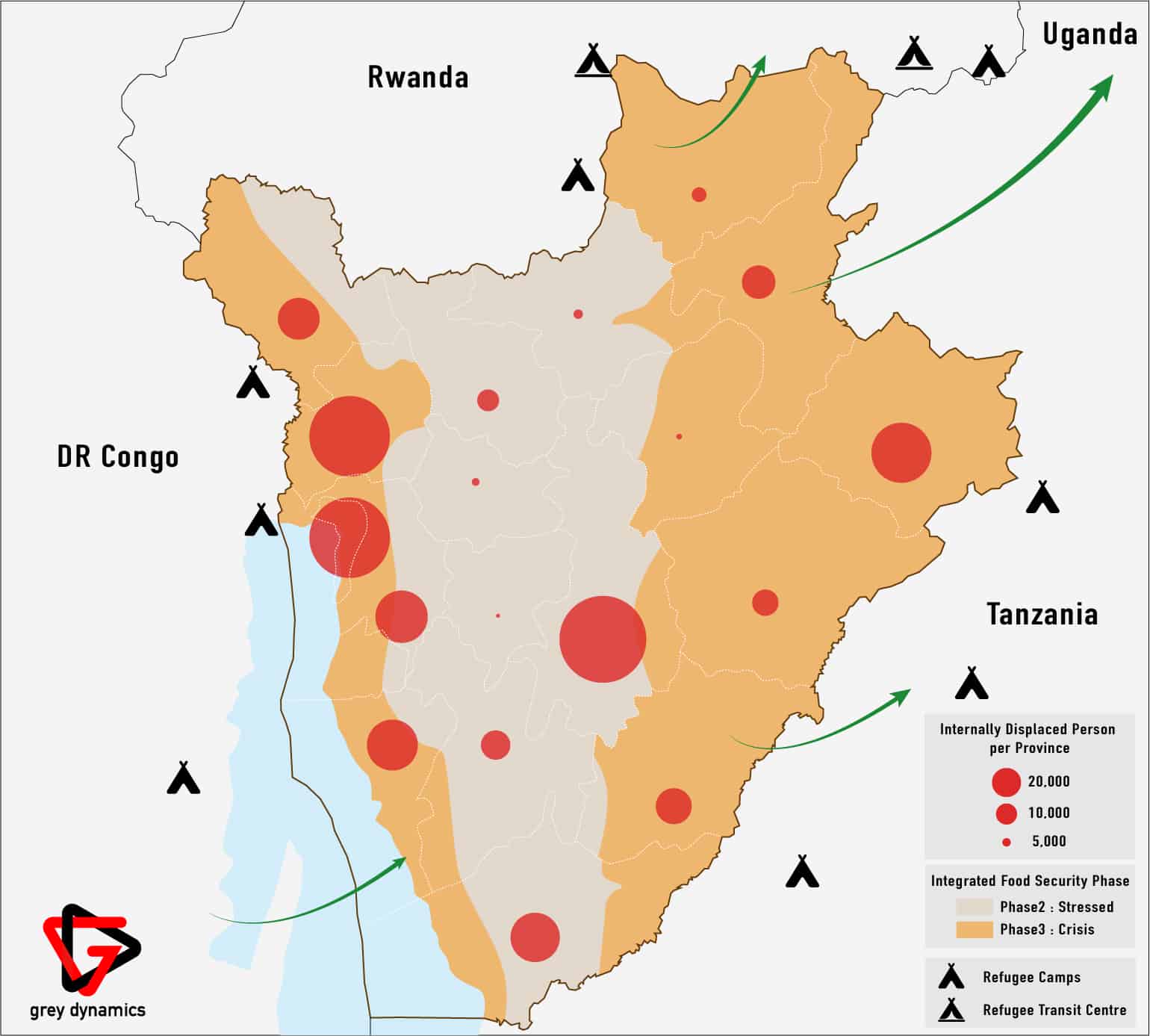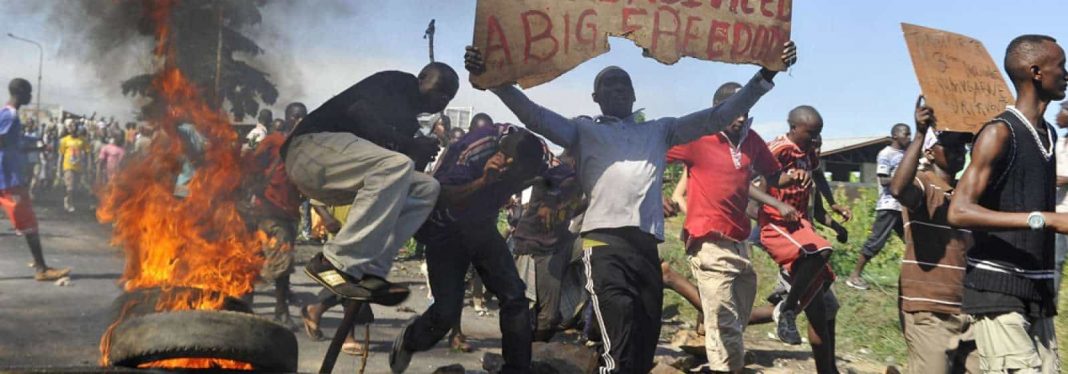
Since April 2015, Burundi has been embroiled in political and social upheaval after President Pierre Nkurunziza unconstitutionally ran for a third term. In response to that decision, mass protests erupted and any critics or opponents to the ruling party, the National Council for the Defense of Democracy – Forces for the Defense of Democracy (CNDD-FDD), have been targeted by the Burundian authorities. The subsequent election in July 2015 won by Nkurunziza was boycotted by the opposition.
Violent repression by the government to any opposition and the general unrest in the country has been labelled a “low-intensity conflict” by the International Crisis Group (IGC). So far in 2019, the suppression of dissent and basic freedoms does not seem to be waning in the lead-up to the 2020 elections.
- In 2005, Nkurunziza came to power five years after the signing of a nationwide peace deal known as the Arusha Accords that constitutionally limited two five-year presidential terms.
- The Arusha Accords ended 12 years of civil war that killed more than 300,000.
- An attempted but failed coup in 2015 led to the death of at least 1,200 people and, according to United Nations (UN) estimates that more than 400,000 fled the country.
- In Oct 2017, Burundi became the first ever country to withdraw from the International Criminal Court (ICC) after the UN asked the ICC to open an investigation on crimes against humanity in the country; the ICC launched the investigation a month later.
- In Oct 2018, country approved revisions to the Constitution after a controversial May referendum; the amendments allow Nkurunziza to remain in power for two more seven-year terms.

“Only the tip of the iceberg”
As tensions rise ahead of next year’s elections, Burundian security forces and Imbonerakure, the militarized youth wing of CNDD-FDD, have allegedly killed, kidnapped and arrested dozens of political opponents. Abuses have been reported in eight of the country’s 18 provinces. Imbonerakurein particular has targeted members of the National Congress for Liberty (CNL) party, which is the main contender for the ethnic Hutu vote. Former rebel leader and currently First Vice President of the National Assembly Agathon Rwasa launched this new party in March. The CNL was formerly known as the National Liberation Forces (FNL), an armed group that remained active until 2009 and then transformed into a political party.
“The alarming violence is fueled by the impunity that prevails in Burundi, and the cases we documented are likely only the tip of the iceberg,” said Central Africa Director at Human Rights Watch (HRW) Lewis Mudge in a statement.” In March, Nkurunziza and his government received negative headlines globally after seven schoolchildren were arrested. They were accused of “insulting a Head of State” after doodling Nkurunziza’s picture in school books. They were later released, but the charges were not dropped and the children could still face up to five years in prison.
Taking aim at the media
On 29 March, Burundi’s media regulator, the National Council of Communication (CNC), announced the withdrawal of the BBC’s operating licence and Voice of America (VOA) remained suspended from broadcasting. Their broadcasts had initially been suspended in the run-up to last year’s referendum in May 2018 with both accused of not respecting the media laws.
The CNC accused the BBC of broadcasting a ‘slanderous, deceitful and scathing’ documentary in April 2018. The VOA is accused of employing a Burundian journalist that the authorities claim was involved in the failed coup d’état in May 2015. In general, the government has taken aim at independent media and many journalists have fled the country in fear for their safety. Mudge of HRW says “local administrators and Imbonerakure members are terrorizing the population with almost no scrutiny, due to the absence of independent media and civil society.”
Sound the alarm?
Burundi’s government has also taken issue with the UN as it threatens to expel its envoy assigned to the country. Michel Kafando, a former president of Burkina Faso, was named in 2017 to head the UN in Burundi. The Office of the United Nations High Commissioner for Human Rights (OHCHR) in the country was closed in February on the orders of the government after ceasing all cooperation with OHCHR in 2016.
During the 14th of June UN Security Council meeting on Burundi, the representative of the United Kingdom was among those that expressed concern over the risk of violence, human rights violations and an escalation of the humanitarian crisis. However, Russia’s representative Alexander Repkin claimed, “the international community has not received any alarming news from Burundi for quite a long time by now.”
Hopefully the last
Burundi’s representative took the floor at the UN Security Council meeting and took issue with the country being on the agenda. He said the situation in the country does not represent a threat to international peace and security and the UN should focus on development. He concluded by saying “I hope this is the last time Burundi is discussed by the Security Council.” This of course disregards the hundreds of thousands of Burundians that have already fled the country to seek refuge in neighbouring countries. It also neglects the tenuous state of the country since the end of the civil war and how quickly the situation could spiral out of control.
Image: Coalition for the ICC (link)

